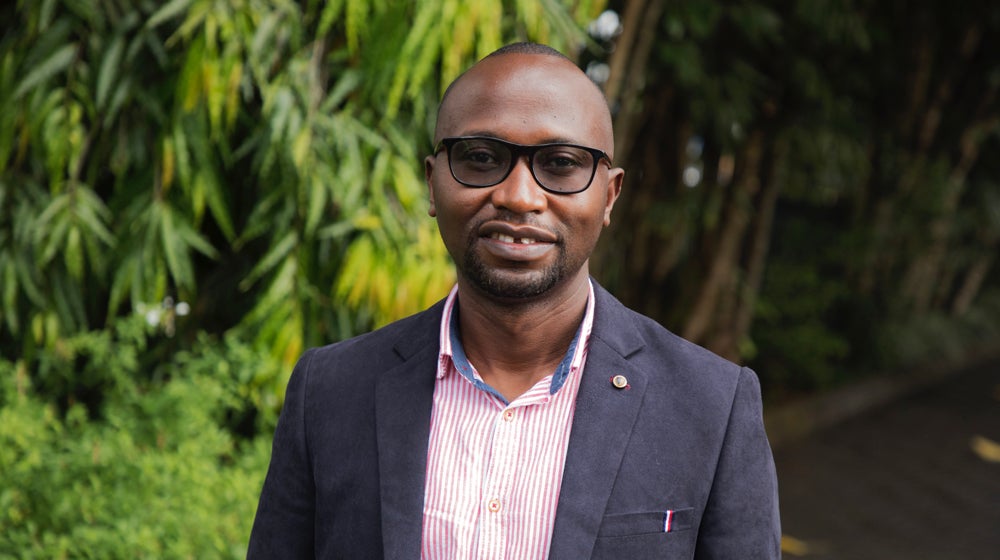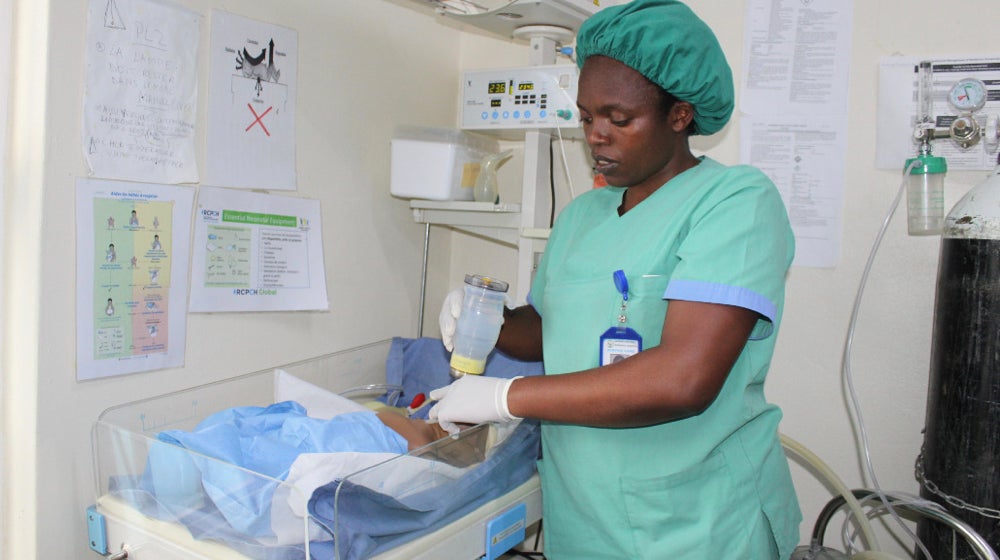Updates
How mobile learning is saving lives by equipping midwives in Rwanda
07 Dec 2021
Updates
07 Dec 2021
The Mobile Learning System is a user-friendly and portable, cost-effective training solution, adapted to rural and hard-to-reach areas relevant for both pre-and in service midwives. Dr. Mathias Gakwerere is the national programme officer for Maternal Health and Midwifery at UNFPA Rwanda. He helped bring the project to his home country after seeing how colleagues in neighboring countries had developed the innovative teaching tool.
“Midwives In Rwanda are facing challenges in their clinical training,” said Dr. Gakwerere. "Many students in midwifery schools don't get a chance to access enough hands-on skills to master the experience they need before graduation.”
With a shortage of staff in rural areas, there are few training opportunities. Health centers don't have the financial means to support conference training or transport for staff to attend workshops in other areas.”
“Limited budgets make it impractical to bring midwives together for training conferences in the capital of Kigali or other cities with convenient training facilities,” Dr. Gakwerere said. “Through the mobile learning system, all providers are supported to enhance their skills,”
With this skills gap identified, the UNFPA Rwanda team had to find a solution to address the challenges faced by facilities in rural areas and improve the quality of care with continuous learning, as well as reinforcement of concepts or skills previously gained through past midwifery training.
Capacity-building to support a system of ongoing professional development.
Through the Mobile Learning System, modules deepen practical skills about the leading causes of maternal mortality in Rwanda like maternal bleeding in childbirth. “It is discussed in terms of case studies,” Dr. Gakwerere said. “It might be that a patient comes in with these symptoms and presents an interactive video that is designed for group learning.”

The central piece of equipment is a projector about the size of a smartphone. It is programmed with globally-recognized curriculum and modules that facilitate discussions and evaluations to help measure the knowledge being shared.
Designing the material around the staff meeting helped focus the lessons to make them easy to use and adapt. Nurses and midwives conduct meetings to discuss a case that they received overnight.
“The module addresses the case they have just seen and refreshes everyone on how they could have done it better or what should be done to manage the case in their hands.”
The integration of this platform in the staff meetings increased inter-generational learning. The group dynamic means professionals are exchanging experiences or asking questions to each other.
Registered midwife Clementine Uwumukiza is one of the trainees and a focal person at Murunda Hospital that uses the platform.
“Before the mobile learning system, we had limited opportunities to train and refresh ourselves. We had to wait for the Ministry of Health training in a distant health facility which could take longer and increase workload for health providers who have to remain on duty. This system facilitates our training and learning at no cost; we have enhanced our skills and knowledge and we are more ready to save the lives of mothers and newborns.“

The UNFPA in collaboration with the Ministry of Health is preparing to scale up the use of the Mobile Learning System across health facilities located in the remaining administrative districts and partners and resources are being mobilized to support it. This will provide synergistic impact with the gamified phone-based remote training solution for nurses and midwives which is at its final stages of development.
“Training midwives is critical and should use a blended learning approach coupling e-learning with practical hands-on mentorship programs. We need to take these systems to scale with partners that can accelerate this kind of innovation,” said Dr. Gakwerere.
Dr. Gakwerere knows it will take time for all partners and donors to understand the benefit of new things but he is inspired by the potential of the learning tool.
“The users of the platform may be health professionals,” he says, “but the real end-user is the women who will receive better care. Rwandan women will have better-trained midwives who are able to save their lives and the lives of their babies.”
Innovation to advance SRH & tackle maternal mortality in Rwanda
UNFPA supports innovation in midwifery through digital technology and stronger policy strategies